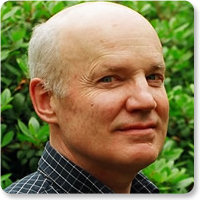Consumers today are thinking more and more about where their food comes from, how it’s produced and what impact their grocery shopping choices have on the world. But, when pushed, many can’t explain logically why they make the choices or hold the views they do. For all those people who care about what they buy and eat but aren’t necessarily that well-versed on the arguments and issues at stake, Food Politics: What Everyone Needs to Know, is a must read.
In it Robert Paarlberg, a professor of political science and leading authority on food politics, addresses clearly and concisely each of the questions at the heart of the matter.
In an age when fashionable beliefs about growing and buying food – such as the trends for organic or local produce – are both prevalent and emotional, Paaarlberg addresses the subject with a very academic, scientific eye, looking at issues from a political, economic and environmental point of view and debunking many popularly held myths along the way.
The book is helpfully divided into 14 chapters examining different areas, such as “Food Aid and Food Power” and “The Politics of Obesity”. Each chapter is then further broken down into the main questions Paarlberg is attempting to answer; “Is the world facing an obesity crisis?”or “How do we measure obesity?”
 As an overview of the subject it is excellent. At just over 200 pages it’s not a big book so it can be read from cover to cover, but the layout also lends itself to dipping in and out of section by section. A glossary is provided at the back, along with a list of acronyms used.
As an overview of the subject it is excellent. At just over 200 pages it’s not a big book so it can be read from cover to cover, but the layout also lends itself to dipping in and out of section by section. A glossary is provided at the back, along with a list of acronyms used.
The writing is clear and fluent, making it easy to understand even for someone with little knowledge of the issues at hand.
However, the subject matter is so broad that Paarlberg can only touch on the surface. As many questions as he answers, more inevitably arise. And as he himself acknowledges in the preface, for each point he has covered there will undoubtedly be many readers with opposing views.
Paarlberg worries in his preface that readers with differing views will be offended, but he doesn’t set out to ram home his views on the matter. Rather, he sets the arguments up for readers to explore further. At the back of the book there’s a whole section on suggested further reading, again divided into the issues that Paarlberg has addressed in the book.
The book certainly made me question some of the choices I make about the food I buy and, although I didn’t agreed with Paarlberg on every point, by challenging what I believed it made me think about why I hold those views and want to educate myself further about the thinking behind them.
If you want a good starting point from which to begin learning more about the politics of food, or if you’re interested in the subject but feel a bit hazy about what it all means, then this is definitely the book for you.
More book reviews on Green Prophet:
Plastiki – Across the Pacific Ocean on Plastic
Book Review: A No-Nonsense Guide to Climate Change
Book Review: Animals in Islamic Tradition and Muslim Culture
Book Review: Strategy for Sustainability by Adam Werbach
Alice Wright is originally from London but has lived and worked in the South West for the past four years, including a year in Totnes – one of the original Transition Towns. She has worked as a news reporter on a regional paper and now writes features for a wide range of national magazines and newspapers. When she’s not writing she enjoys pretending to be a dressmaker on her sewing machine and sitting in pubs putting the world to rights. She dreams of one day having a garden where she can grow her own vegetables but is making do with a pot plant in her top floor flat for now.


Comments are closed.